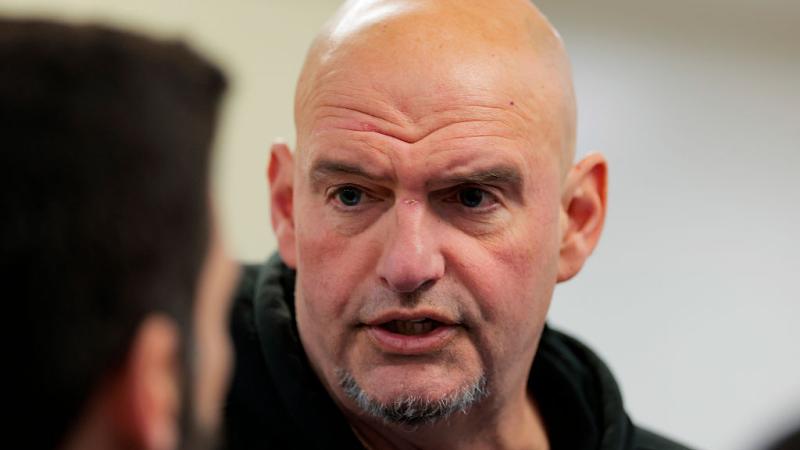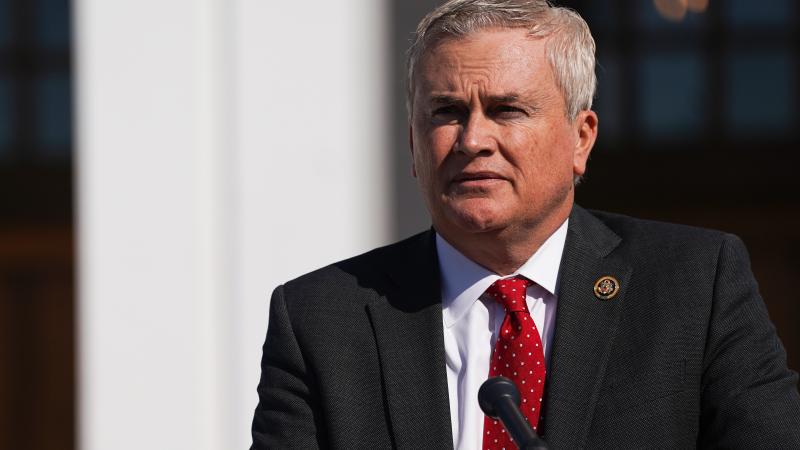Postmaster General insists USPS ready for election, pushes back on delivery plan concerns
"When it comes to elections, there are 50 states and thousands of election jurisdictions that are far [from] uniform in their election laws and practices and that often don't consider how the mail system works," Louis DeJoy said.
Postmaster General Louis DeJoy testified Thursday before the House Appropriations Committee's Subcommittee on Financial Services and General Government, assuring members of Congress that the United States Postal Service is ready to handle mail-in ballots for the November election while pushing back on concerns over its new mail delivery plan.
The hearing came amid concerns regarding the USPS's ability to deliver mail-in ballots in a timely manner, with the presidential election less than six weeks away.
DeJoy testified that USPS is prepared for vote-by-mail this election cycle.
"Let me be clear, the Postal Service is ready to successfully deliver the nation's mail-in ballots," DeJoy said. "We have a long track record of success delivering election mail back to 1864 even though, during the global plan pandemic in 2020, we were successful in delivering a historic volume of mail-in ballots during the presidential election year, delivering 99.89% of the ballot from voters to election officials within seven days, our recommended common-sense timeframe for ballot return by mail."
"We will be even better prepared for 2024. Our network is designed to readily handle a surge in mail-in volume, just like we do every election and holiday season, even in 2020. The historically high number of ballots accounted for just 0.1% of the Postal Service's total mail volume that year," he went on.
He explained that USPS rescues ballots "that are entered late into our system, likely too late to make the election deadline set by election officials. They represent a deviation from normal mail flow and processing, meaning they won't run through our plants and processing machines as mail normally would."
An issue with mail-in ballots is that every state has different laws and rules for their administration, DeJoy said.
"When it comes to elections, there are 50 states and thousands of election jurisdictions that are far [from] uniform in their election laws and practices and that often don't consider how the mail system works," he noted.
Subcommittee Chairman David Joyce, R-Ohio, said in his opening remarks on Thursday that the USPS' new "Delivering for America plan to streamline and improve operations," which was announced in March 2021, has negatively impacted delivery times in some regions that were part of a pilot program. The plan will be implemented after the presidential election.
The "Richmond, Virginia processing facility saw a staggering 21% drop in on-time performance for first-class mail," Joyce said. "In Atlanta, Georgia, the situation was worse after similar changes on-time performance first-class mail plummeted by 51%.
"Unfortunately, many of these changes have served to further erode the public confidence in the U.S. Postal Service. It's important for us to remember that these are not just numbers on our report. We're talking about missed prescriptions, late checks, and delayed legal documents that directly harm the American citizens. So we approach a presidential election, many of our constituents have expressed concerns about the Postal Service's ability to deliver election ballots securely and on time. It is imperative that the Postal Service get this right. Voting by mail increased by 25% from 2016 to 2020 we expect that voting by mail will be popular again during the 2024 presidential election."
Rep. Matt Cartwright, D-Pa., referenced a Washington Post article from August in which DeJoy was quoted as saying, “[a]t the end of the day, I think some portion of the mail showing up 12 hours later, I think it’s a price that had to be paid for letting this place be neglected."
“You look around every other country, [delivery] is longer, it’s much more expensive," he said. "We’re trying to save the Postal Service — not figuratively, not to advocate for something. We’re trying to literally save the Postal Service.”
"Is it acceptable for hardworking rural Americans, like my constituents in northeastern Pennsylvania to be subjected to longer delivery times? Do you really think that rural Americans should have to pay the price, figuratively and literally, because of the Postal Service's management?" Cartwright asked Thursday.
"I disagree with the premise, and I think it's an unfair accusation, considering the condition that the Postal Service has been allowed to get to, and also concerning, well, prescriptively, what we're suggesting to do," DeJoy said.
The new delivery plan is "going to help us financially. It's going to do what we were required to do with that, as specified in the Postal Reform Act, integrate mail and package movement. And I think it is a tolerable situation," he added.
After Cartwright asked for the Washington Post article to be entered into the record, DeJoy said, "I would suggest you get more reliable sources of information, though. I mean that the Washington Post has historically been a negative, unsubstantiated, sensationalized newspaper as it comes to matters with regard to the United States Postal Service."
DeJoy argued last week that former President Trump and other critics of the postal system’s ability to handle mail-in ballots in the upcoming election are wrong.
"My response is like my response to everyone who says that we're not prepared for the election -- it's that they're wrong," he said last Thursday. "I don't know that I need to comment any more than that. They're wrong."
DeJoy said he understands that election officials are “under an extreme amount of pressure” through the election cycle.
"We also recognize that the American public will become increasingly alarmed if there is ongoing dialogue that continues to question the reliability of the Postal Service for the upcoming elections,” he said. “The Postal Service is ready to deliver the nation's mail in ballots."
On Sept. 11, the National Association of State Election Directors wrote a letter to DeJoy outlining their concerns with the postal service’s handling of mail-in ballots, such as an “increase in mail returned as undeliverable.”















